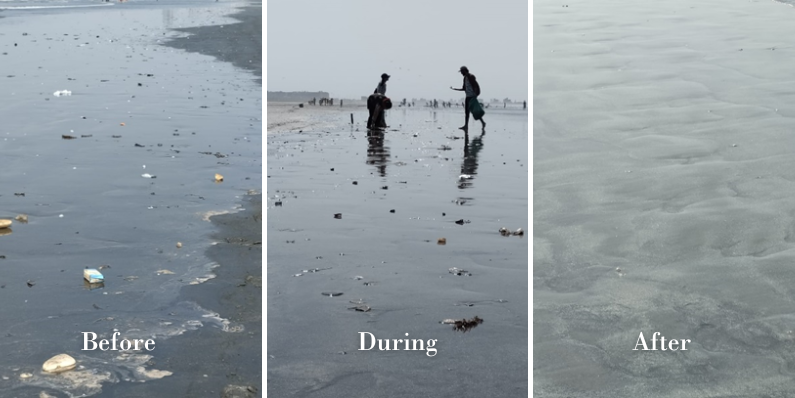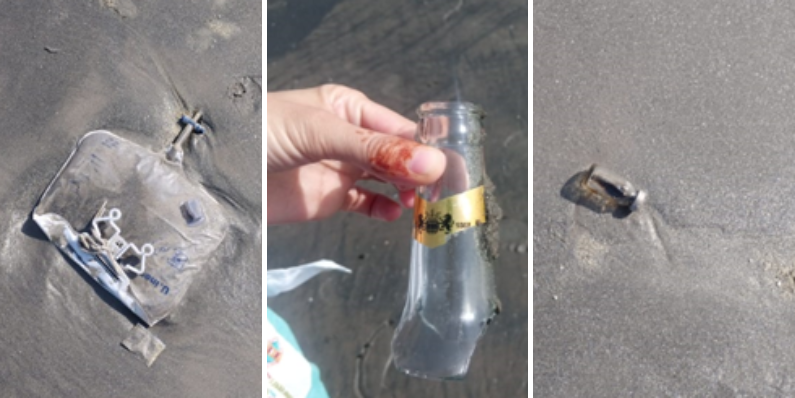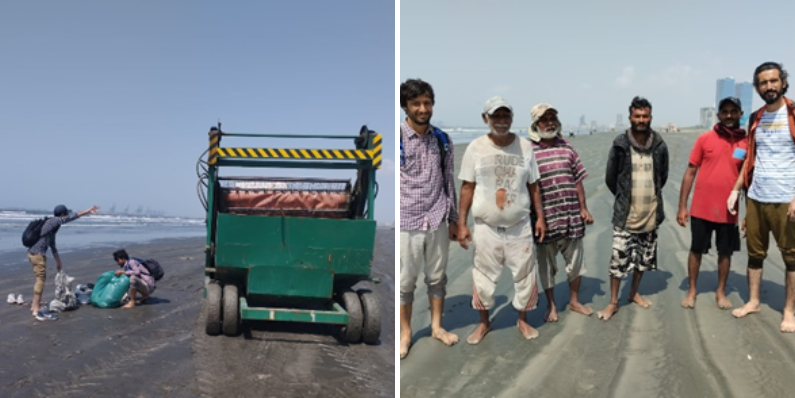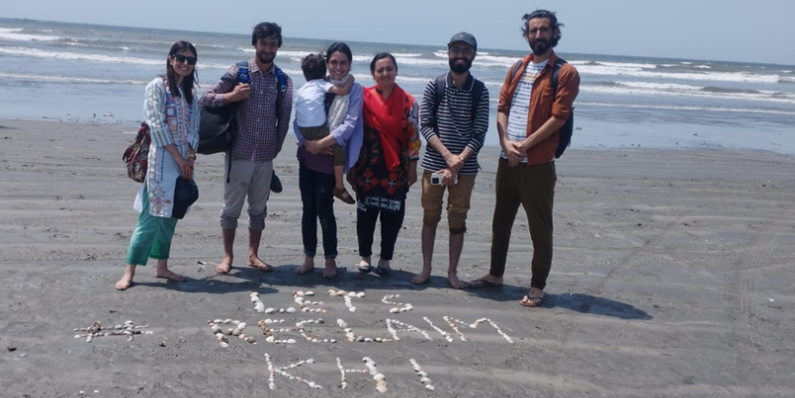Let’s Reclaim Karachi
A special blog for Earth Day 2023 by the students of the Environmental Education elective course, led by Zaibunisa Hussain

As a part of our course, we participated in the "Let's Reclaim Karachi" cleanliness campaign at Karachi Seaview beach. We were appalled by the extent of the damage caused by unmanaged solid waste. The once-beautiful beach was strewn with a wide range of trash, including broken glass and ceramic fragments, medical waste, garments, shoes, single-use plastics, wrappers, fishing lines, and even flour bags. Dead crabs and jellyfish littered the beach, clearly indicating the toll that the pollution has taken on the marine life that calls this place their home.

Figure: The health and safety hazard posed due to medical and glass waste is obvious
When we spoke with local fishermen, we came to understand the severe impact of solid waste on their livelihoods. They shared their struggles to catch fish due to pollution and trash that destroys their nets. The pollution not only affects their livelihoods but also discourages visitors from coming to the beach with their families. Mismanagement of solid waste and the lack of a proper waste-collection mechanism are the primary reasons for this shocking situation. Although a cleaning machine seemed to be in operation, it was impractical and only collected a small amount of trash, which was then dumped back on the beach. Furthermore, dustbins were not easily accessible, making it difficult for people to dispose of their waste properly. According to a cleaning staff member, a lot of trash also comes with the waves. Solid waste dumped in the sea by big ships coming to import with large containers is another issue. Staff who stay for months dump all their waste in the sea.
Beach clean-ups are one way we can make a small impact in keeping solid waste away from the ocean. We noticed that most of our plastic waste accumulates along shorelines before it floats out into the open sea and becomes micro plastics. Therefore, every small effort counts, and beach cleaning can go a long way in preventing further damage. By picking up the solid waste pollution on a beach, we are preventing it from being washed into the sea and potentially saving a sea animal's life.

Figure: Picture of students dumping the trash in the designated vehicle and with the fishermen interviewed for the blog
As educators, we believe involving school children in such campaigns is crucial as it helps them understand the consequences of solid waste pollution. When children see the type of waste, they ask multiple questions about their sources. This curiosity is the beginning of genuine education, and it is vital to engage them in finding solutions to these problems. It is time for us to reflect on our actions and take responsibility for our waste. Governments must take strong regulatory actions to enforce strict solid waste management practices, and individuals must use their voices to demand change and hold those in power accountable.
We acknowledge that we all bear responsibility for the solid waste problem and must take action to address it. We urge everyone to be mindful of their actions when disposing of waste, reflecting on the interconnectedness of all living beings and the impact our actions have on the environment. By taking small but deliberate steps towards proper waste disposal, we can prevent harm to the environment and the marine life that call our beaches home.

Figure: Course lead, Dr Fozia Parveen with students after creating a hashtag from seashells
Reclaiming Karachi beach and preserving our planet for future generations is a collective responsibility that requires the participation and commitment of all of us. While we acknowledge the need for big systems to change, we think that we can drive a bottom-up campaign to influence the big polluters too. It is time for us to act and make a difference, no matter how small. Together, we can work towards a cleaner and healthier planet, preserving our beautiful beaches and oceans for generations to come by managing solid waste responsibly.


